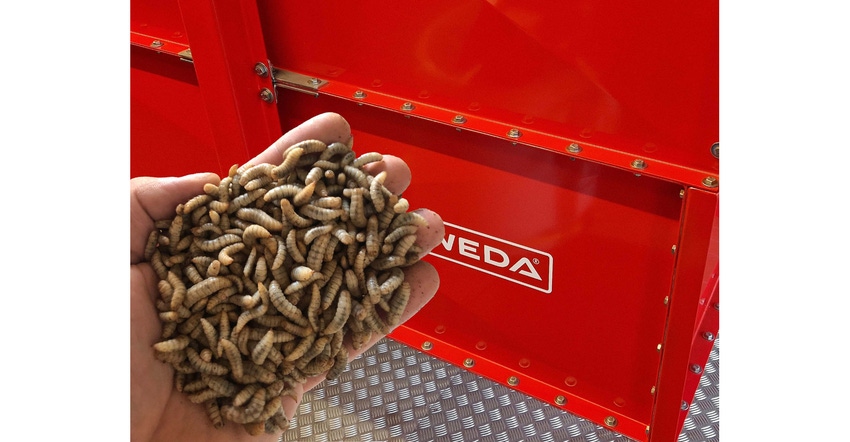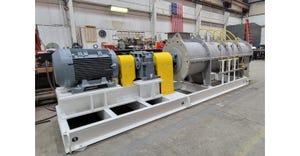Fly larvae as an efficient source of protein for the animal feed of the future
March 30, 2022

WEDA Dammann & Westerkamp GmbH supplied the complete insect feeding system for Polish feed producer HiProMine. The company from Robakowo near Poznan breeds insect-based proteins on an industrial scale using the black soldier fly. With WEDA’s new plant, 550 tons of substrate are produced and fed there every day. The technology creates a food chain in which the insect forms a bridge between plant waste and sustainable animal feed.
Feeding the Growing World Population
The use of the soldier fly as a feed insect can make an important contribution in the future to feeding the growing world population in a resource-saving way. Compared to other feedstuffs, insects are the only source of protein for which the raw material can be 100% utilized. Furthermore, no waste is produced during the manufacture of animal proteins. In fact, during their growth, the larvae feed exclusively on organic waste. The soldier fly Hermetia illucens is also characterized by extremely rapid development, with larvae fattening in about seven days.
Proven Technologies
“In addition, the end products are free of antibiotics and genetically modified organisms,” WEDA product manager Jens Feldhaus argued in favor of expanding the breeding method. In the insect feeding systems of HiProMine, the proven technologies of WEDA Dammann & Westerkamp are used for this purpose.
Inexpensive, Nutrient-Rich, Ecological Protein Source
Insect-based feeds are currently already approved for domestic animals, poultry, pigs, and aquaculture. If the technology becomes established worldwide, insects have the potential to become an inexpensive, nutrient-rich and ecological protein source for all animal feed. Prof. Dr. hab. Damian Jozefiak, one of the founders of HiProMine and professor at the Poznan University of Life Sciences, is very satisfied with the prospects and the cooperation so far. “With WEDA, we have found exactly the right technology partner who offers us the production security we need for the sustainable development of this business field,” he said.
About the Author(s)
You May Also Like




